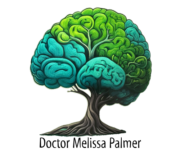How to Improve Memory: A Comprehensive Guide for All Ages Part 2 (Autumn 2024): Age-Specific Memory Challenges and Solutions
Age-Specific Memory Challenges and Solutions
Humans go through different memory challenges as they move through life. Each stage of life brings its’ own challenges that need their own unique solution.
• Memory development in children and teenagers
When a baby is born their brain is not fully developed. The brain continues to develop and for this to happen new connections between neurones (brain cells) have to occur. This development of new connections occurs rapidly in the first two years after birth. It is at around this time that a child develops a sense of self. The best way to indicate if your child has a sense of self is to place some lipstick or face paint on their nose and then hold them in your arms as you look in a mirror. If your child recognises that they have lipstick or facepaint on their nose they have developed a sense of self.
The development of a sense of self is important for developing memories of the child’s life. These are called episodic memories. These memories enable us to remember early episodes of our life and then later ones and so on. The sense of self is important but not enough on it’s own to help support a child to develop a good memory. To develop a memories a child needs to have a good understanding of the world around them. This understanding is supported best with language. Talking to your child is vital to help them support their understanding and hence, be able to make good memories.
The teenage brain is a complex. Teenager go through a big rewiring of their brain. This also means that they do not have a fully functioning pre-frontal cortex. This can lead to risk taking behaviours, not understanding emotions in others and being egotistical (I am sure parents of teenages are nodding sagely at this). During this state of flux we are expecting our children to undertake the most important time in their education thus far. To support our teenagers we can encourage a focus on the key three: exercise, healthy eating and sleep. All of these have been demostrated in research to have a positive impact on being able to learn and being able to recall information.
• Strategies for adult learners and professionals
Research has demonstrated that adult brains still have neuroplasticity well into old age (80 year old plus). What does this mean? If your brain still has neuroplasticity this means that you can make new connections between neurones (brain cells) and change connections between neurones. This means you can learn new skills and change old habits too! The biggest challenges to the memories of adult learners and professionals is under estimating what they are capable of doing and having cognitive overload from all the different roles in life (e.g. paid job, parent, running a household and studying). One solution where possible delegate. You don’t have to do everything you can teach those around you (for example taught my teenagers 3 basic meals so I they could fix themselves some lunch on the weekends). The other solution here is centralise. You may have a work calendar, to do lists in many different note books and electronically. Put everything for work, home, parenting etc in one place. It will take maximum of a day to do this but the time and energy you will save in the long run is worth it. This will free up time and cognitive load to work on your goals.
• Combating age-related memory decline in seniors
Firstly, do not expect your memory to deteriorate massively as you get older. It is good to have high expectations of yourself. There are all sorts of techniques to keep your mind active and prevent memory decline. Research shows that connectivity with people prevents memory decline. People who have quality relationships (romantic or friendships) in their lives are less likely to experience memory decline.
Staying physically active also prevents memory decline. Something as simple as going for a regular walk will make a difference. Other activities that can prevent memory decline are learning something new or a new skill, singing in a group or a choir, completing brain teasers, puzzles and playing games.
• Tailoring memory improvement techniques to different life stages
We have seen that it is important to develop young children’s memories by talking to them to increase their understanding of the world. We can support our teenagers by helping them get the key three right – exercise, healthy eating and sleep. This will help them learn as their brains go through radical changes. Adult learners can reduce cognitive load by delegating and centralising tasks. Finally age related memory decline can be combated with having good relationships, exercise, learning new information or skills, singing and brain teasers. I hope you have found this helpful.
